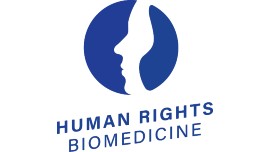Embryo/Fœtus

Scientific, technological and medical developments which involve intervention on the embryo or fetus continue to accelerate, raising ethical and legal questions. Faced with these developments, it seemed important to undertake a more in-depth reflection on questions relating to the protection of the embryo and fetus and the use of techniques of medically assisted procreation in order to supplement the provisions of protection set out in the Framework Convention. To this end, a working group examined the ethical and legal problems linked to the possibilities of intervention on the embryo and fetus.
Read more
The work of the Working Party has particularly focussed on the fundamental questions surrounding the question of the protection of the embryo and foetus in the framework of in vitro fertilisation procedures, as well as the problems raised by preimplantation diagnosis and by recent developments in the research field.
It appears that, while a large number of issues relating to the protection of the embryo in vitro are the subjects of consensus at European level, on certain points there remains a great diversity of opinion that makes it difficult to identify a common approach. In that context, it was considered that a report, making the most of the reflection within the Working Party on the protection of the human embryo in vitro , would be a useful step to advance discussions on an ethical level on these issues.
That report, made public on 19 June 2003, presents briefly and impartially the diverse positions that exist on questions related to the protection of the human embryo in vitro as well as their underlying arguments. It broaches the different questions of principle concerning the protection of the human embryo in vitro that are relevant from the point of view of all the problems touched on in the report. It then deals with the problems raised by in vitro fertilisation, research on the embryo in vitro and preimplantation genetic diagnosis respectively.
Legal instruments and related documents
- Additional Protocol to the Convention for the Protection of Human Rights and Dignity of the Human Being with regard to the Application of Biology and Medicine, on the Prohibition of Cloning Human Beings
- Questionnaire on access to medically assisted procreation (MAP) and on right to know about their origin - Replies by member States updated in November 2021
- Surrogacy. Addendum to the Replies to questionnaire on access to medically assisted procreation (MAP), on right to know about their origin for children born after MAP - Replies by member States updated in November 2021
- Questionnaire on access to medically assisted procreation (MAP) and on right to know about their origin - Replies by the member States, 2012
- Terms of Reference of the Group of Specialists on the Protection of the Human Embryo and Foetus (CDBI-CO-GT3)
- The protection of the human embryo in vitro - Report by the Working Party on the Protection of the Human Embryo and Fetus, 2003
- Защита эмбриона человека in vitro - Доклад Рабочей группы по защите эмбриона и плода человека, 2003
- Medically assisted procreation and the protection of the human embryo: Comparative study on the situation in 39 States, and Cloning: Comparative study on the situation in 44 States, 1998
- Report on Human Artificial Procreation Principles - Set out in the Report of the Ad Hoc Committee of Experts on Progress in the Biomedical Sciences (CAHBI), 1989










